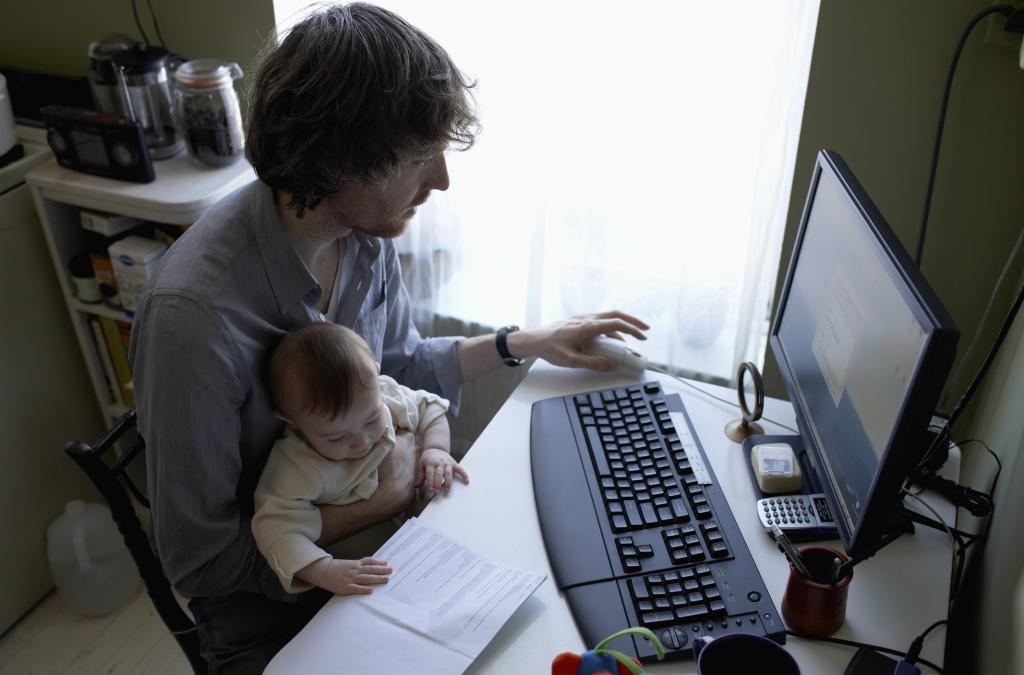
In recent years there has been an increasing trend of flexible working arrangements, which was accelerated by the Covid 19 pandemic. Businesses and families had to adjust to a new way of life with many individuals shifting to working from home either full-time or for significant parts of their week. Whilst the heights of home working during the pandemic have not been maintained, as of September 2024, 14% of the workforce in the United Kingdom work solely from home, with a further 27% of the workforce having hybrid arrangements in place. In this article we look at how flexible work arrangements are shaping parenting arrangements.
As a result of this, there has been a direct impact on how families approach the child arrangements and a post pandemic way of life has presented both opportunities and challenges for families, balancing their work and childcare responsibilities.
Opportunities
Being able to work remotely has changed the way in which many individuals plan their childcare arrangements, with many previously needing to rely on the assistance of family members or external childcare options to make sure the children are sufficiently cared for or in some cases, being left with no option but to reduce the amount of hours they are able to work. The increase in remote working opportunities has however, given many parents the chance to be present for their children during the day and extend their caring duties beyond what was previously possible when they were expected to be physically present ‘in the office’ during usual working hours. Parents who now work from home may no longer need to rely on daycare or other carers, allowing them to spend more time supervising their children, assisting with schooling and spending more time with them.
The landscape has changed for many families where historically, one parent may have been required to work in the office and therefore sharing the childcare arrangements relatively equally would have been impossible, however it is now in reality, a feasible option for many and one which many families are embracing as flexible work arrangements are shaping parenting arrangements. In many respects the advent of remote working could be perceived as means of positively transforming family dynamics, creating more opportunities for children to spend meaningful time with both parents.
Whilst there are certainly clear benefits of more flexible arrangements, there are various pitfalls that will also need to be considered to ensure that children can continue to benefit from a structured approach that supports their needs and promotes a healthy balanced family environment.
Challenges
Whereas previously, when the majority of workers would keep their time at work and their home life entirely separate due to having to be in the office, there is a risk that parents being able to work from home can make it more difficult for them to separate their work commitments from their family life. It can cause difficulties for the working parent being able to find quiet time to focus on their work whilst the child is spending time with them or conversely, the child may miss out on quality time with the parent due to them working whilst in their care, or learning a negative perception of working expectations, if their parent appears to work too many hours.
If one parent, due to their career choices, is left in a position where they can work from home whereas the other parent cannot, it can lead to imbalances in the childcare arrangements. If one parent is physically able to work from home, whereas the other parent is not, it may mean that a child spends a disproportionate amount of time with the parent who is able to work from home, purely based on the practical arrangements, rather than what is necessarily best for the child. Practical arrangements in terms of a parent’s ability to be available for a child are taken into account by the court when considering how the arrangements should be structured, yet it would appear that a parent with a career choice that necessitates them being physically present on-site as opposed to being able to work from home, would be unreasonably penalised.
This could also have the potentially unwanted effect of impacting the level of financial support that one parent would receive for example, if one parent is able to work from home and look after the child for five nights out of seven, whereas they would have previously spent only a couple, then there would be a significant shift in terms of the level of child maintenance paid. The parent who is not able to be present as much as the one working from home may also feel a sense of resentment as their time with the child is being diminished, purely because of a career choice they have made.
If disputes arise
If disputes arise about which parent a child should spend more time with arises and cannot be resolved outside of the court arena, the court will need to consider what is in the child’s best interests but also, the parent’s practical arrangements will need to be considered in terms of the parents’ availability to provide care for the child. This does therefore mean that the ability to work remotely can place one party at an unfair advantage, simply by virtue of being able to work from home.
Whilst remote working can present the challenges mentioned above, as has always been the case, it is imperative for parents to retain the ability to communicate constructively to work together in the best interests of the children. Each family will have their own arrangements that will suit the needs of the children and the ability to work flexibly if raised by both parties can potentially increase the amount of time children can spend with both parents and also ensure their needs are met without having to rely on external childcare which of course, often comes at a significant cost.
Unfortunately, arrangements for children are not always straight-forward and disputes can arise and in extreme cases the courts involvement becoming necessary to settle any disputes. Where there are challenges there are often solutions and it is important to take legal advice at an early stage to avoid conflict arising or relationships becoming irreparable. At Stephens Scown we have a dedicated team of lawyers who specialise in child arrangements who are available to help navigate the process whether it is finding practical solutions or assisting in achieving a result in the best interests of the child through the court process.
If you wish to discuss how flexible work arrangements are shaping parenting arrangements please get in touch with our Family Law team who will be happy to help.
